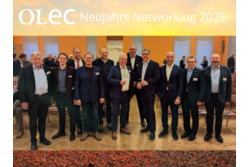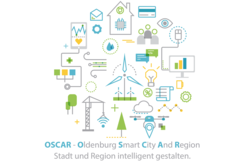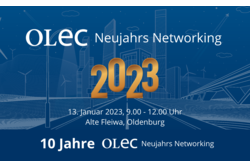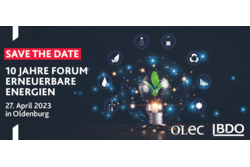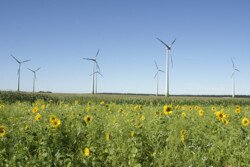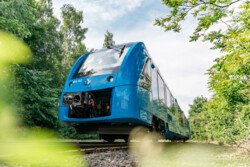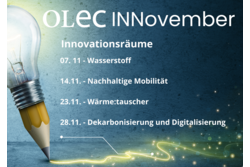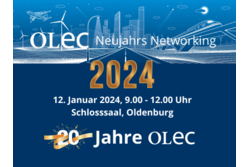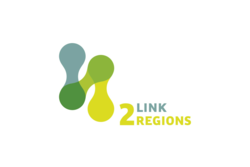
The North Netherlands and the Northwest are two dynamic energy regions and with a high share of renewable energy sources, the region has a leading position in the energy transition. Hydrogen as an energy carrier plays a special role in this. The Oldenburg Energy Cluster (OLEC) and the Dutch New Energy Coalition (NEC) have brought together various experts in the hydrogen field for over 1 year as part of the international networking project H2LinkRegions to jointly develop solutions for cross-border cooperation. H2LinkRegions, which is funded by the European Regional Development Fund (ERDF) as part of the INTERREG Germany-Netherlands program, aims to initiate joint developments and knowledge exchange within the northern Dutch provinces and the northwest of Lower Saxony. The focus is on cross-border cooperation potential for hydrogen economy projects, including in the areas of storage and mobility as well as ports, logistics and the use of surplus electricity from renewable energies.
The project was concluded in early December at a cross-border virtual conference. Here, numerous projects from different sectors dealing with hydrogen applications were presented from the border region. Solutions for the mobility and industrial sectors currently occupy a key position. But the use of hydrogen is also being considered in the agricultural sector - for example in agricultural machinery. From small start-ups developing hydrogen buses to municipal strategies and activities to funded hydrogen and fuel cell technology projects, so-called HyPerformer projects, the border region is equipped with numerous competence carriers.
This is also shown by a potential analysis for cross-border cooperation in the subject area of hydrogen, which was presented at the conference. The study, prepared by the engineering firm PLANET, ARSU GmbH and the Dutch consulting firm Summit, sheds light on cooperation potential in various key areas, but also on acute obstacles. It concludes that SMEs in particular still need support to enter the dynamic market. Klaus Stolzenburg of PLANET summarizes: "In order to better tap the cross-border potential, we make some recommendations at the end of the study. In this context, overcoming institutional and regulatory barriers is certainly one of the thicker boards to be drilled."
Roland Hentschel, Chairman of the Board OLEC e.V.: "We have laid the foundation for a future very close interlocking of the important hydrogen regions Northeast Netherlands and Northwest Germany. If we now use this opportunity for cooperation in a targeted manner, this will become a new European core area for innovation, value creation and employment in the hydrogen economy."
OLEC and the New Energy Coalition also want to join forces more strongly on the topic of hydrogen in the future and set up a cross-border round table.
You can download the study here. For more information on the project,click here.
Translated with www.DeepL.com/Translator (free version)




